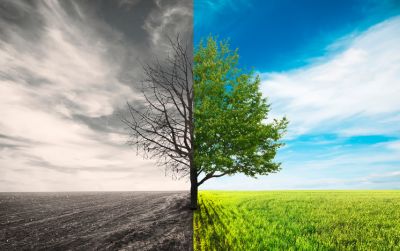 With recent headlines about the record-breaking hurricanes Harvey and Irma, there will likely be concerns about how to deal with mourning the dead in their aftermath. Religion and culture dictate funerary customs to which governments must remain sensitive while balancing public health and safety needs. Nevertheless, past disasters have proven one salient point. Honoring the departed, while contending with life-threatening conditions and destroyed infrastructure, can be extremely challenging.
With recent headlines about the record-breaking hurricanes Harvey and Irma, there will likely be concerns about how to deal with mourning the dead in their aftermath. Religion and culture dictate funerary customs to which governments must remain sensitive while balancing public health and safety needs. Nevertheless, past disasters have proven one salient point. Honoring the departed, while contending with life-threatening conditions and destroyed infrastructure, can be extremely challenging.
Haiti: A Case Study in Post-Disaster Death
Death tolls after the Haiti’s 2010 earthquake reached over 300,000, according to an Encyclopedia Britannica entry. Many of the nation’s 10 million citizens were displaced and struggling to find food, shelter or other assistance due to infrastructure left crumbling in the quake’s wake. With the country’s hospitals unable to treat the sick and injured, an estimated 1 million people left homeless and government agencies unable to deal with the dead, reports of corpses piling up in the streets soon came out of the island.
A February 2010 NPR article revealed that placing them in mass graves became a common practice. This distressed many Haitians, who strongly believe that properly observing burial customs ensure that the souls of loved ones move on to the afterlife. Friends, loved ones and even enemies of the deceased gathering for nine days to mourn. After eating, drinking, chanting and praying together during that time, they hold a funeral ceremony and inter the body. A 2013 write-up in the Haiti Observer explained that cremation is considered unacceptable by Haitian standards, as the corpse must be left whole to guarantee resurrection. In the months after the quake, many Haitians still grieved lost family and felt a lack of closure because there were no grave sites to visit.
The Challenges of Finding and Naming the Deceased
Natural disasters usually create significant obstacles in locating and memorializing people who have perished. As the 2010 Haitian earthquake proved, these tasks often take a backseat due to breakdowns in infrastructure, the need to secure food and water, rescuing survivors, treating the injured and sheltering the homeless. For instance, USA Today reported that a few dozen bodies were unidentified 10 years after the 2005 landfall of Hurricane Katrina.
However, finding and recovering the dead is still a concern during these destructive events. The World Health Organization reveals that while the bodies do not pose risks for epidemic diseases, some blood-borne viruses and gastrointestinal infections can still be transmitted. The WHO advises against interring them in mass graves, as these can waste resources and offend the living. Furthermore, the organization lays down specific guidelines to handle the remains while minimizing the chances of contracting illnesses.
Online and Physical Public Memorials
To help remember the lives lost during Katrina, a memorial was built at the Charity Hospital Cemetery on Canal Street in New Orleans’ French Quarter. It unfortunately did not receive much attention from local news outlets, likely due to the impending approach of Hurricane Gustav close to its dedication ceremonies in August of 2008. Meanwhile, Legacy.com erected a special searchable section of its website dedicated for Katrina’s victims.
Ironically, Houston residents who remembered the influx of Louisiana’s refugees after the 2005 storm are now forced to confront somewhat similar questions in the aftermath of Harvey. The Washington Post disclosed in August 2017 that some former Crescent City residents had resettled in Texas’ “Magnolia City.” Thankfully, the Dallas Morning News clarified that the 2017 storm has left a much lower death count than Katrina, with only 31 dead versus 1,800. Yet even with Harvey’s significantly lower casualty counts, those who have lost loved ones are still left with the same problem that follows any natural disaster: grieving and remembrance while struggling to rebuild their own lives.
Add Your Comment